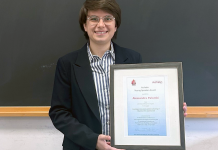
According to PRI/Nadcap Operating Procedure NOP-1111, suppliers are able to receive something called “Merit.” If your suppliers meet certain criteria, they are able to secure a merit status, which enables suppliers to have a longer period between audits; this can be 18 months to two years. This may be a cost savings source, although, while you may not have a choice from PRI standpoint, having merit may not always be a benefit, depending on how your organization is structured and supported.
What is “Merit”?
Merit allows Nadcap-accredited suppliers to reduce their audit frequency to every 18 months or, if you meet certain criteria, every 24 months. This merit process may not be good for every supplier. It really depends on your management system and support. Your company may have a management system that is very involved and is able to support the two-year merit process. Other companies may not have the support needed. Below are the separate requirements needed to achieve merit.
18-Month Merit
Be at least the second reaccreditation audit in the commodity.
• No Non-Sustaining Corrective Actions identified on current or previous accreditation audit or on any additional scope audit between the current and previous accreditation audit.
• No verification of corrective action (VCA) audits as a result of current or previous accreditation audit.
• No Type C Auditee Advisories (reference OP 1109 Auditee Advisories) issued by that Task Group since the start of the previous accreditation audit.
• No more than 14 days of cumulative delinquency.
• No more than 50 percent of major and 60 percent of total NCRs allowed for mode B reaccreditation audit failure criteria in OP 1110 Audit Failure and Risk Mitigation.
• Any other reason not addressed above and defined by the Task Group in their OP 1114 Task Group Operation Appendix or documented in the audit merit screen and approved by quorum during Task Group Review.
24-Month Merit
Previous two consecutive accreditations in the commodity must have been a minimum of 18 months each.
• No major NCRs.
• No more than seven days of cumulative delinquency.
• Any other reason not addressed above and defined by the Task Group in their OP 1114 Task Group Operation Appendix or documented in the audit merit screen and approved by quorum during Task Group Review.

Maintaining Merit
Once the merit status is achieved, the challenge typically lies in maintaining the existing quality system to ensure conformance. I have seen suppliers get too relaxed with their daily quality assignments, which are typically discovered in the next Nadcap audit. This is especially true for suppliers who are on the two-year merit process.
I would recommend that anyone who has achieved any level of the merit process treat their quality system as though they will be audited every 12 months. Actually, performing internal audits every 12 months will also be helpful, depending on what the internal procedure for audits states. This would mean that constant review of documentation is required along with consistent testing and verification of production cycles.
Summary
Merit can be seen as a good thing to some suppliers due to what is required to achieve it. To others, it may not be conducive to the quality systems. Each supplier is different and it is important to keep up with quality system requirements regardless of the merit status.
























